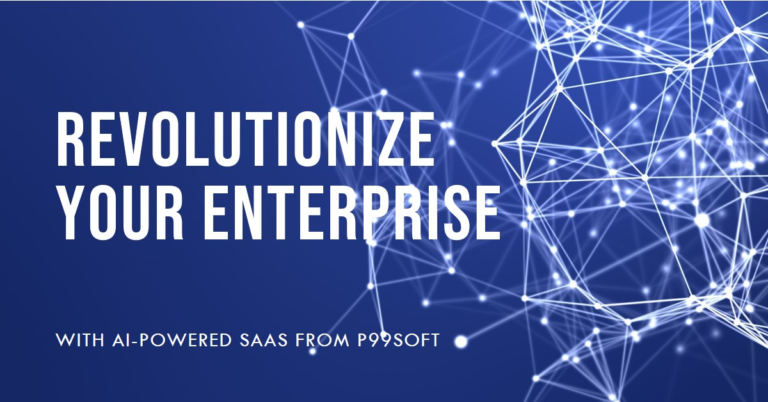As the tech landscape evolves, the integration of artificial intelligence (AI) into enterprise Software as a Service (SaaS) is revolutionizing how businesses operate, innovate, and compete in the global market. In 2024, one of the pivotal elements behind successful AI implementation is the role of software testing services. These services not only ensure that AI functionalities operate smoothly and efficiently but also mitigate risks that could lead to costly errors and downtime. This article explores the crucial role of software testing in the adoption of AI within enterprise SaaS platforms, with a focus on quality assurance (QA) testing services and talent management strategies.
The Need for AI in Enterprise SaaS
Enterprise SaaS platforms provide scalable and versatile solutions that businesses rely on for a range of operations, from customer relationship management to financial planning. Integrating AI into these platforms can dramatically enhance their capabilities by automating tasks, analyzing large datasets, and providing actionable insights. A report by Deloitte highlights that AI-enhanced SaaS can improve customer engagement by 35% through personalized experiences and proactive service solutions.
However, the adoption of AI technologies is not without challenges. Issues such as data integrity, algorithm bias, and system integration require rigorous testing to ensure that the AI functionalities not only meet the designed expectations but also comply with regulatory standards.
Role of Software Testing Services
Software testing services are fundamental to the successful deployment of AI in enterprise SaaS solutions. They perform multiple critical functions:
- Validation and Verification: Testing services validate and verify that the AI algorithms integrated into the SaaS applications perform as intended across various scenarios and data sets.
- Security Testing: As AI systems often process sensitive data, security testing becomes crucial to prevent data breaches and ensure compliance with laws such as GDPR and HIPAA.
- Performance Testing: This ensures that AI functionalities do not compromise the system’s performance, particularly under load, and that response times remain within acceptable thresholds.
- Bias and Fairness Testing: AI systems are prone to biases present in their training data. Testing services assess algorithms for fairness and bias, ensuring that the AI’s decisions are ethical and unbiased.
P99Soft’s Contribution to Enterprise SaaS
In the sphere of enterprise SaaS, P99Soft emerges as a leader in facilitating the seamless integration of AI functionalities through its specialized QA testing services and talent management. By ensuring that AI components are rigorously tested for functionality, security, and performance, P99Soft helps businesses leverage the full potential of AI without compromising on quality or performance. The firm’s expertise in talent management also ensures that the right skills are available to address the sophisticated needs of AI-driven SaaS platforms, supporting ongoing innovation and adaptability.
Challenges in AI Adoption and the Role of Testing
Despite the advantages, integrating AI into enterprise SaaS platforms presents several challenges:
- Complexity of AI Models: AI algorithms are complex and require sophisticated testing strategies to ensure they perform as expected.
- Continuous Integration and Deployment: AI-driven applications necessitate frequent updates, requiring robust testing frameworks that support continuous integration and deployment.
- Scalability: As businesses grow, the AI systems must scale accordingly. Testing must confirm that these systems can handle increased loads without performance degradation.
Future Trends in AI Testing
Looking forward, the evolution of AI in enterprise SaaS will likely focus on enhanced predictive analytics, deeper learning capabilities, and more robust data privacy features. Testing services will need to innovate continually to keep pace with these advancements, potentially using AI themselves to automate and enhance testing processes.
FAQs
Q1: What makes AI integration in enterprise SaaS different from traditional applications?
A1: AI integration often involves complex data processing and real-time decision-making capabilities, which are not typically present in traditional applications.
Q2: How can AI enhance the customer experience in enterprise SaaS platforms?
A2: AI can provide personalized experiences, automate customer support, and optimize user interfaces based on individual user behaviors.
Q3: What are the key benefits of involving a QA testing service in AI projects?
A3: QA testing services ensure the reliability, efficiency, and security of AI functionalities, thereby reducing operational risks and enhancing user satisfaction.
Q4: How does P99Soft ensure the quality of AI functionalities in SaaS platforms?
A4: P99Soft employs comprehensive testing methodologies that include automated testing, performance testing, and bias assessment to ensure high-quality AI integration.
Q5: What are the future trends in AI testing for enterprise SaaS?
A5: Future trends include the use of AI-driven testing tools, increased focus on security testing due to rising cyber threats, and testing for ethical AI.
Conclusion
As we progress further into 2024, the role of software testing services in facilitating AI functionalities within enterprise SaaS solutions becomes increasingly significant. Through rigorous testing and continuous improvement in testing methodologies, companies can harness the power of AI to not only streamline operations but also gain significant competitive advantages. As businesses continue to depend on these advanced technologies, partnering with firms like P99Soft that excel in QA testing services and talent management can be a pivotal strategy. Are you ready to elevate your enterprise SaaS solutions with cutting-edge AI capabilities?




